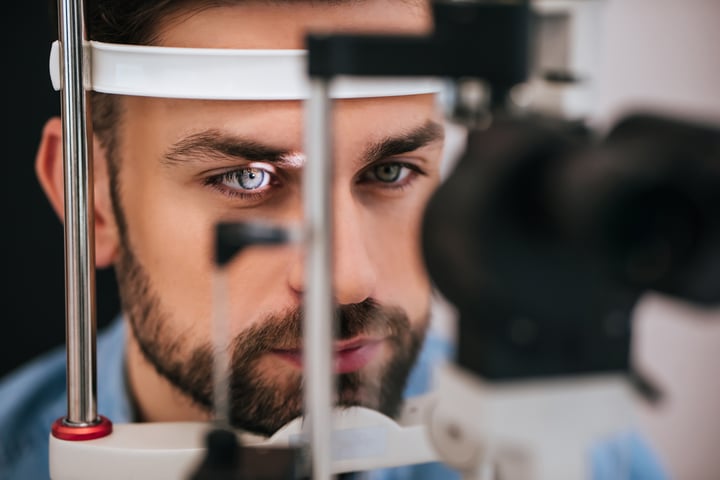By Andrew Hickey on Apr 10, 2024 @ 02:57 PM
Vision is a complex process that involves the eyes and brain working together. The eyes perceive depth and identify objects' size, shape, color, texture, distance, and motion. These are all key factors when driving. You read road signs, recognize hazards, and identify the distance between you and other vehicles.
Driving presents many challenges, even for people with 20/20 vision. A study has shown that one in five drivers suffers from a vision deficiency that affects their driving performance. Therefore, any visual impairment can be a severe threat to everyone involved.
Here, we will go over the effects of poor vision on driving and what you can do to be safe on the road.
Key Takeaways:
- Poor vision affects driving performance and can severely threaten everyone involved.
- One in every five drivers suffers from a vision deficiency affecting their driving performance.
- Nearsightedness and astigmatism are some of the most common vision problems drivers face.
- Regular eye check-ups with an optometrist are essential to keep your vision in check.
- When driving at night, it's crucial to keep your headlights and mirrors properly adjusted and ensure your glasses or contact lenses have an up-to-date prescription.
- Eating a healthy diet rich in vitamins and minerals, avoiding smoking, and wearing sunglasses can also help improve your vision while driving.

How Poor Vision Affects Your Driving
One of drivers' most common vision problems is myopia (nearsightedness). It can make seeing distant objects, such as traffic signs, difficult. Another common issue is astigmatism, which can cause blurry vision and difficulty focusing on the road.
As we age, our vision tends to decline even more, leading to conditions such as presbyopia, cataracts, and glaucoma. These conditions make adjusting to different light conditions harder and affect our ability to react quickly to unexpected situations.

How to Improve Your Vision While Driving
There are steps you can take to improve your vision before and during your next drive, which include:
- Remember to look as far ahead as possible.
- Actively scanning to prepare for any upcoming or changed road conditions.
- Positioning and using your mirrors correctly.
- Keep your head and body square to avoid altering the view and perception of the conditions ahead.
- Make sure your headlights are turned on so you are visible to other vehicles.
- Wear sunglasses to protect your eyes from harmful UV rays.
- Eating a healthy diet rich in vitamins and minerals and avoiding smoking

Tips for Driving at Night
When driving at night, visibility can be a challenge due to poor lighting and the need for more complex visual tasks. So, keep these tips in mind:
- Regularly maintain your headlights and replace broken bulbs for adequate lighting on the road.
- Keep your windshield, windows, headlights, and taillights clean.
- Wear your glasses or contact lenses with an up-to-date prescription.
- Ensure your mirrors are always correctly adjusted.

How Eye Exams Work
Visual acuity and vision (visual field) are the primary factors determining whether you can drive safely. Color vision helps you identify traffic signals and brake lights. In addition, contrast sensitivity lets you see pedestrians, lights, and road signs in harsh weather and at night.
Regular check-ups with an optometrist are essential to maintaining good vision. They can identify any vision problems, prescribe corrective lenses, or recommend treatments to improve vision. Also, get an annual hearing test to monitor your hearing health.
The visual acuity test measures how well you can see and is assessed by reading letters on an eye chart. Several visual field tests are available, which assess your eyes by focusing on a central point. The most common test involves watching flashing lights on a special device.
Healthy vision is essential for driving, and any visual impairment can be a hazard on the road. To ensure your safety and the safety of others, have regular eye check-ups, take care of your eyes, and wear corrective lenses if necessary. Doing so lets you enjoy the freedom of driving with peace of mind.
For more tips on maintaining healthy eyes (and teeth), you can download your free guide on How Diabetes
Affects your Teeth and Vision.
Want to have Solstice benefits?
Call our sales team at 1.877.760.2247 or email Sales@SolsticeBenefits.com
Already have Solstice benefits?
See your plan details by going to https://www.mysmile365.com/ or calling us at 1.877.760.2247.





comments